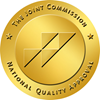Thank you for choosing TriHealth for your diabetes care. We strive to provide excellence in prevention, identification and management of diabetes across the TriHealth system.
Our team works together to ensure that every patient with diabetes gets state-of-the-art diabetes care every time. It's this commitment that's gained our comprehensive diabetes and endocrinology care national recognition. In fact, Bethesda North and Good Samaritan Hospitals have been designated as a Joint Commission Centers of Excellence for Advanced Inpatient Diabetes Care.The achievement of this certification is the result of a multidisciplinary collaborative effort across specialties and hospitals to standardize care so that every diabetic patient in every TriHealth hospital location receives optimal care, every time.
across specialties and hospitals to standardize care so that every diabetic patient in every TriHealth hospital location receives optimal care, every time.
From our doctors and nurses to our testing centers and doctor offices, we do everything we can to help you return to and maintain good health. Meet our team.
We wish you the best in your journey as we work together to help you live a healthier life.
Living with diabetes doesn't have to be difficult. TriHealth is here to help you learn about your condition, get answers to your common questions and find doctors, services and resources at TriHealth to help you live better.
Learn more about:
Living with Diabetes
Resources and Education
Whether you or your family member have diabetes, our resources and education offerings will help you gain the knowledge and support needed for a healthy future.
Our Diabetes Manual
If you are looking for additional information, consider downloading our Diabetes Manual. This book is a tool packed with information you need to help manage your diabetes.